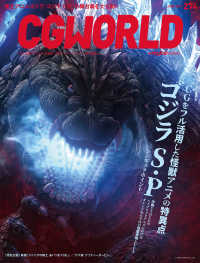- ホーム
- > 洋書
- > 英文書
- > Religion / Ethics
Full Description
Joachim of Fiore (c.1135-1202) remains one of the most fascinating and enigmatic figures of medieval Christianity. In his own time, he was an influential advisor to the mighty and powerful, widely respected for his prophetic exegesis and decoding of the apocalypse. In modern times, many thinkers, from Thomas Müntzer to Friedrich Engels, have hailed him as a prophet of progress and revolution. Even present-day theologians, philosophers and novelists were inspired by Joachim's vision of a Third Age of the Holy Spirit.
However, at no time was Joachim an uncontroversial figure. Soon after his death, the church authorities became suspicious about the explosive potential of his theology, while more recently historians held him accountable for the fateful progressivism of Western Civilization.
Contributors are: Frances Andrews, Valeria De Fraja, Alfredo Gatto, Peter Gemeinhardt, Sven Grosse, Massimo Iiritano, Bernard McGinn, Matthias Riedl, and Brett Edward Whalen.
Contents
Acknowledgments
Notes on Contributors
Introduction: Joachim of Fiore in the History of Western Culture
Bernard McGinn
1 The Life and Works of Joachim of Fiore - An Overview
Alfredo Gatto
2 Joachim the Theologian: Trinitarian Speculation and Doctrinal Debate
Peter Gemeinhardt
3 Joachim the Theorist of History and Society
Brett Edward Whalen
4 Joachim the Abbot: Monastic Reform and the Foundation of the Florensian Order
Valeria De Fraja
5 Thomas Aquinas, Bonaventure, and the Critiques of Joachimist Topics from the Fourth Lateran Council to Dante
Sven Grosse
6 The Influence of Joachim in the 13th Century
Frances Andrews
7 Longing for the Third Age: Revolutionary Joachism, Communism, and National Socialism
Matthias Riedl
8 The Reception of Joachim in Contemporary Theology and Postmodern Philosophy
Massimo Iiritano
Bibliography
Index








